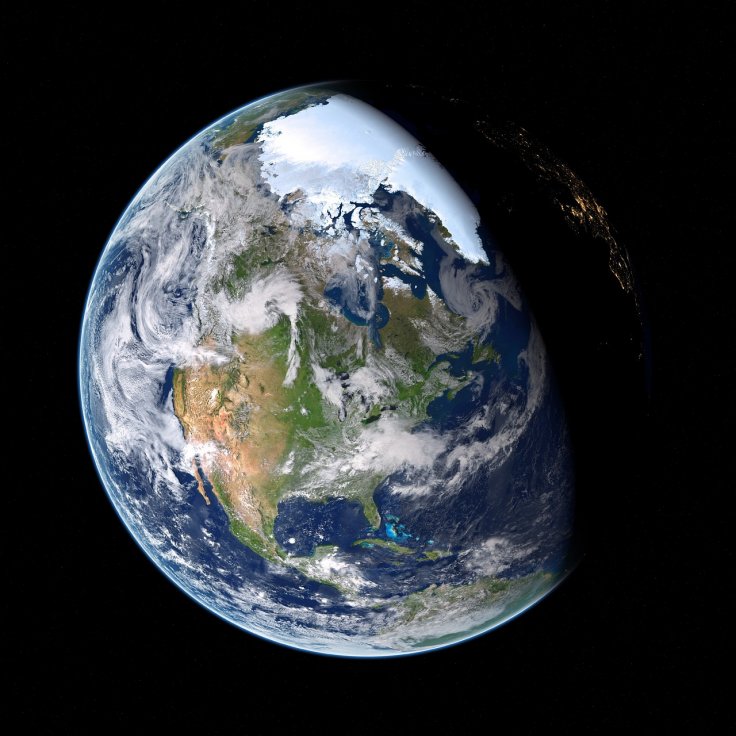
Earth will spin faster on Wednesday (July 9), making it the shortest day in recorded history because of the Moon's position, according to scientists. On average, the planet completes its full rotation on its axis, from the Sun's point of view, in exactly 86,400 seconds, with a slight difference in a millisecond or so. In other words, 86,400 seconds is equal to 24 hours.
However, Earth could complete a full rotation around the Sun on Wednesday (July 9) nearly 1.30 milliseconds faster than on average days. The celestial speed up will range between 1.3 and 1.6 milliseconds less than the usual 24 hours on Wednesday. So, Wednesday might feel shorter than the other days with lots of things to do and no time to finish them.
Experts say that this change is due to a scientific phenomenon, which results in the Earth's faster spinning. The blue planet will spin faster this summer due to the Moon's position, they explained. When the position of the Moon is far to the south or north of Earth's equator, the planet spins faster. Other reasons for this phenomenon could be anything, ranging from natural disasters to seasonal changes. This disturbance in the force will be the sixth of its kind since 2020.
Shortest Days in Recorded History
A millisecond is considered less than the amount of time required to blink an eye, which could last around 100 milliseconds. That's why the tiny time difference may not be imperceptible to humans. These tiny day-to-day variations in the Earth's spinning are measured with the help of atomic clocks, introduced in the 1950s. The length of the day is calculated by measuring the number of milliseconds Earth needs to complete a full rotation on its axis.
Scientists found the blue planet creating a new record every year since 2020. Until 2020, the shortest recorded length of the day was -1.05 milliseconds. It means Earth completed a full rotation around the Sun in 1.05 milliseconds less than 86,400 seconds. But the planet managed to break the record by half a millisecond every year.
Here are the Shortest Days Recorded in History Since 2020:
- July 19, 2020 - 1.47 ms
- July 9, 2021 - 1.47 ms
- June 30, 2022 - 1.59 ms
- July 16, 2023 - 1.31 ms
- July 5, 2024 - 1.66 ms
Experts said that Tuesday (July 22) and Tuesday (August 5) could be similarly short days. On Tuesday (July 22), the planet is expected to complete a full rotation on its axis in 1.38 milliseconds less than its average 86,400 seconds. Similarly, on Tuesday (August 5), Earth could complete a full rotation around the Sun by 1.51 milliseconds less than 86,400 seconds.
International Earth Rotation and Reference Systems Service (IERS), which is responsible for handling the negative leap second, revealed that this phenomenon could lead to the first adjustment to the clock, expected to be made in 2029.
"This is an unprecedented situation and a big deal. It's not a huge change in the Earth's rotation that's going to lead to some catastrophe or anything. However, it is something notable. It's yet another indication that we're in a very unusual time," New York Post quoted Duncan Agnew, a geophysicist at the Scripps Institution of Oceanography at the University of California, San Diego.









